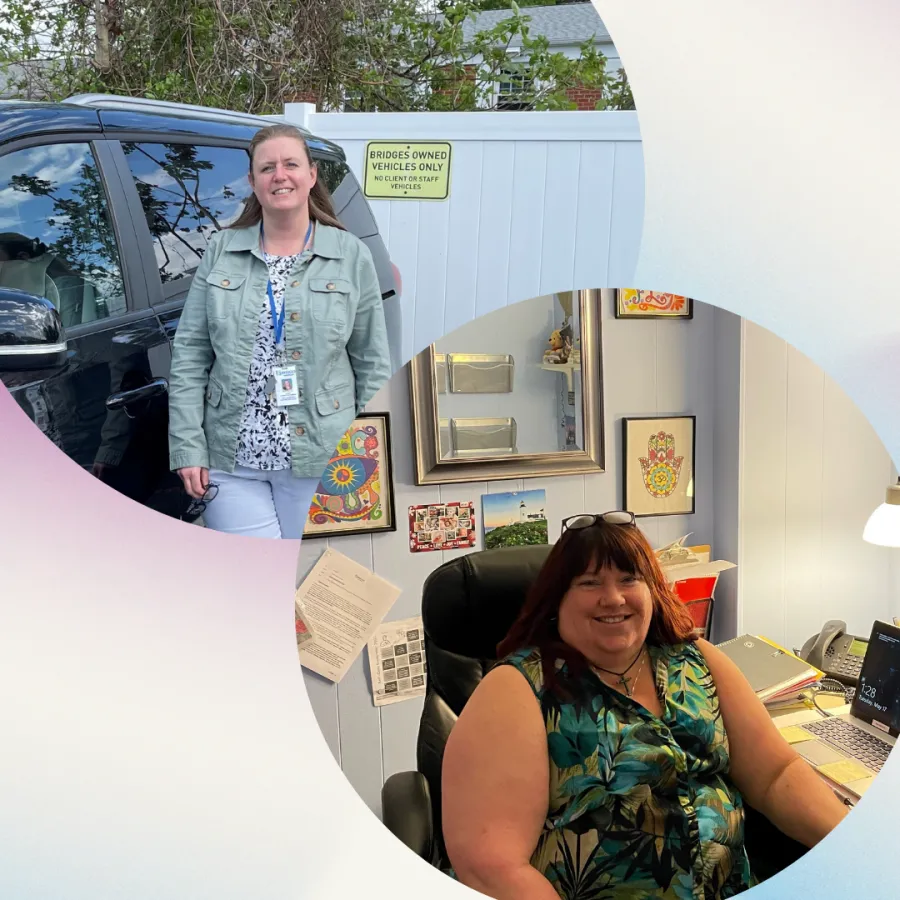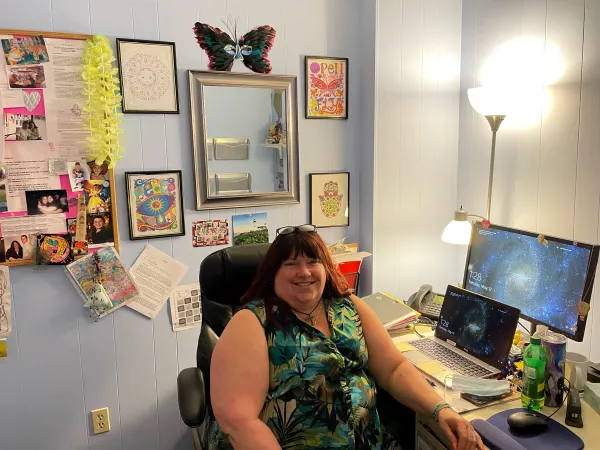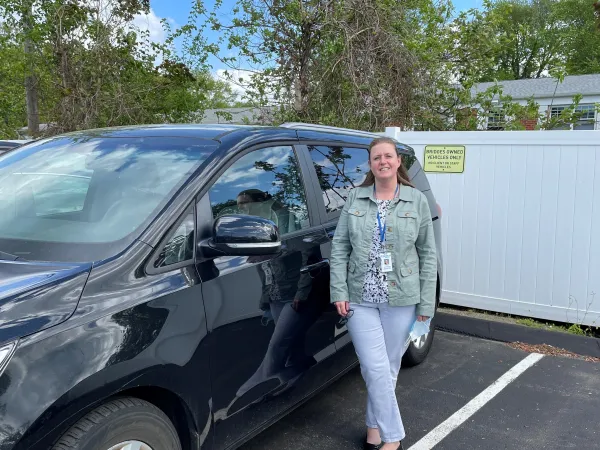Council 4 Members Are Crusaders For Mental Health Wellbeing

May is Mental Health Awareness Month — a time to raise awareness and reduce the stigma around mental illness and conditions.
Members of AFSCME Local 1303-143 employed at Bridges Healthcare Inc. in Milford support individuals with severe and prolonged mental illness, behavioral issues and addiction problems.
For Patti “Mama P” Barber, case manager, and Wendy Burrows-Gardino, peer community support specialist, their work involves helping people become more self-sufficient and reach their goals.
Barber has worked for 12 years with young people ages 18 to 25 — many of whom have suffered various types of abuse or come from broken homes — find a steadier transition into adulthood.
She teaches activities of daily living, fosters coping skills to deal with past traumas and connects them to public assistance benefits.
“They want someone that can guide them in that parental way,” she said.

In her office, Barber is surrounded by artwork made by young adults who ran a café she started and held craft fairs every weekend to sell their pieces.
“It was great for building socialization, because a lot of them don’t really have the social skills,” she said. “They got to come out, make money and meet different people.”
Burrows-Gardino helps people reach their self-determined goals and establish themselves. She has worked at Bridges for seven years and generally meets with clients in their homes or out in the community, such as at doctor’s appointments.
“You’re that extra support,” she said, “and listening to help them follow through on whatever those next steps are that they might need to do.”
If a client wants to learn how to use public transportation, Burrows-Gardino may ride the bus with them. Other skills she teaches her clients include how to advocate for themselves with medical providers, implement new diets or medication and maintain public assistance benefits.

Bridges has been serving the greater New Haven community for 60 years. Its name symbolizes not only its role as a connecter to resources, but as a chance to get from one place to another.
Burrows-Gardino feels the most rewarding part of her work is when she has helped clients meet the goals they set for themselves, or even simply to identify what their goal is.
“It’s not always an easy track,” said Burrows-Gardino, “sometimes you have to take a few steps back to get those few steps forward.”
Barber has seen many of her young adult clients overcome anger issues and learn coping mechanisms. Many of her former clients now have their own homes, vehicles, steady jobs and college degrees.
Barber and Burrows-Gardino understand how deeply stigma impacts their clients and the barriers that prevent people from accessing needed services.
“When you hear someone is in a program, they think they’re harmful or mean or always getting in trouble,” said Barber. “That’s not always the case. People just don’t always understand.”
Supporting Members Who Support Their Community
Being in a union provides protection, benefits and suitable compensation to allow case managers in the mental health field like Barber and Burrows-Gardino to support others.
“Having a union is having someone there to stand with you,” Burrows-Gardino said. “Upper management doesn’t necessarily always know what it’s like to do our job because they’re not in the trenches every day.”
Barber said their jobs can be “very dicey sometimes.”
“You need that extra support [that comes with union membership],” she added. “It means the world [to us].”
Burrows-Gardino often shares her own past challenges dealing with mental health and addiction to build connection with her clients so they feel less alone and hopeful they can make lasting changes in their lives.
“There’s so much more to us as individuals than just the label,” she said. “How are we going to move forward and address it if we don’t peel that layer away and realize we [all] need to do better and be open to understanding what someone is going through?”
